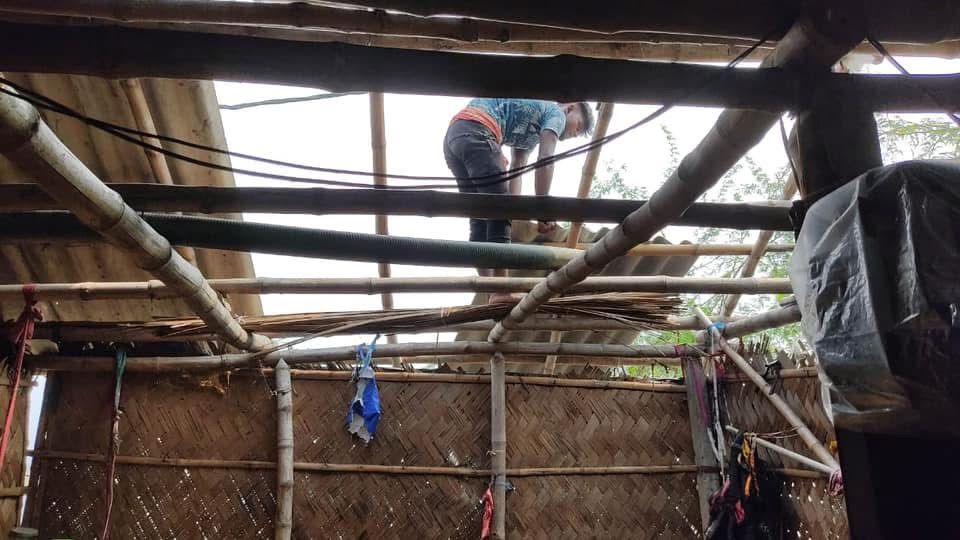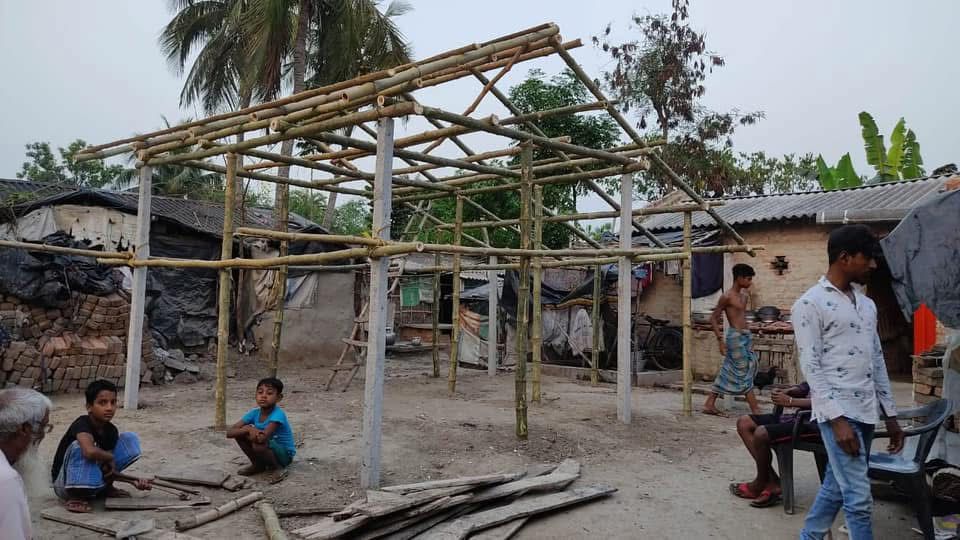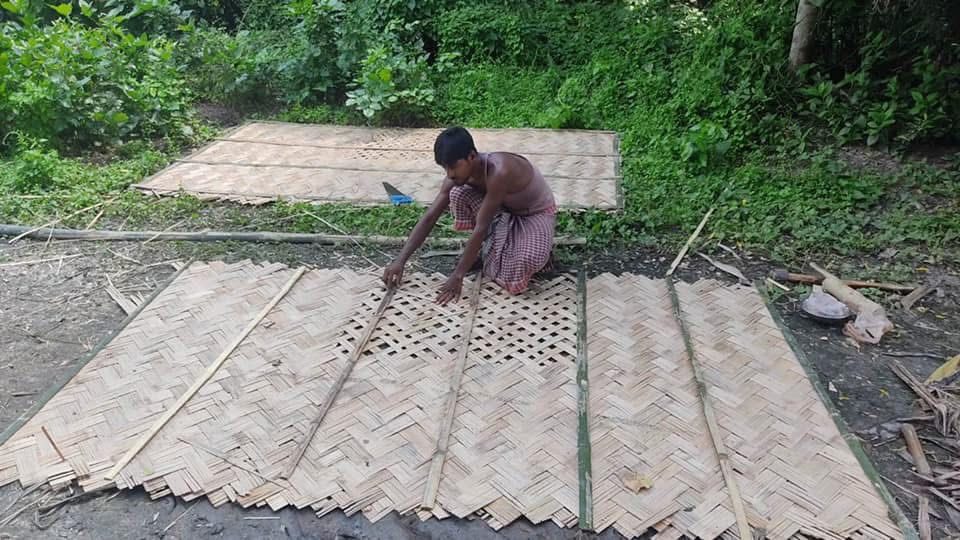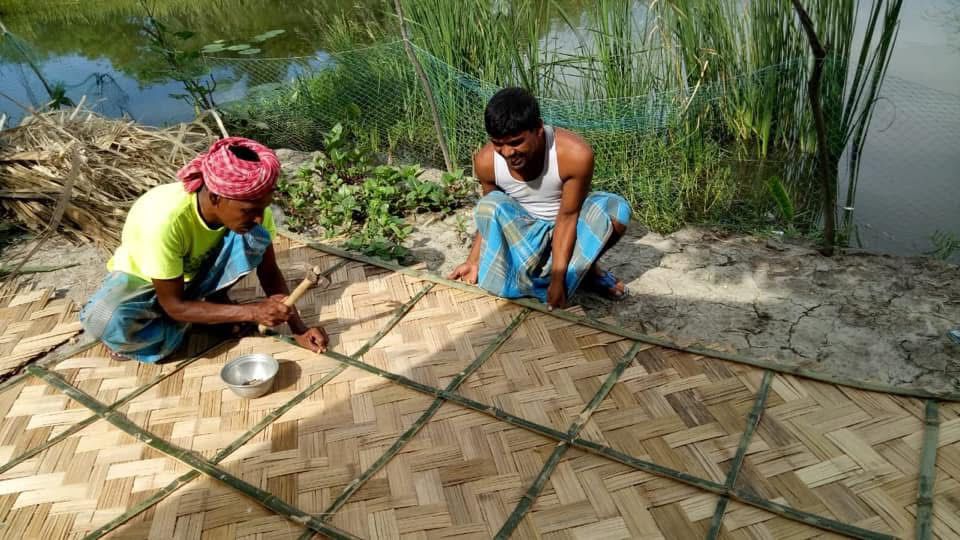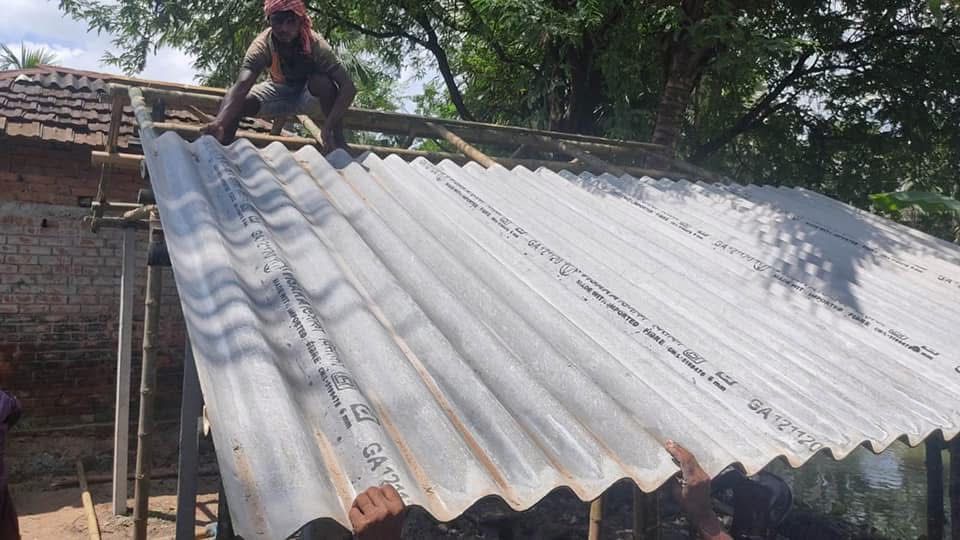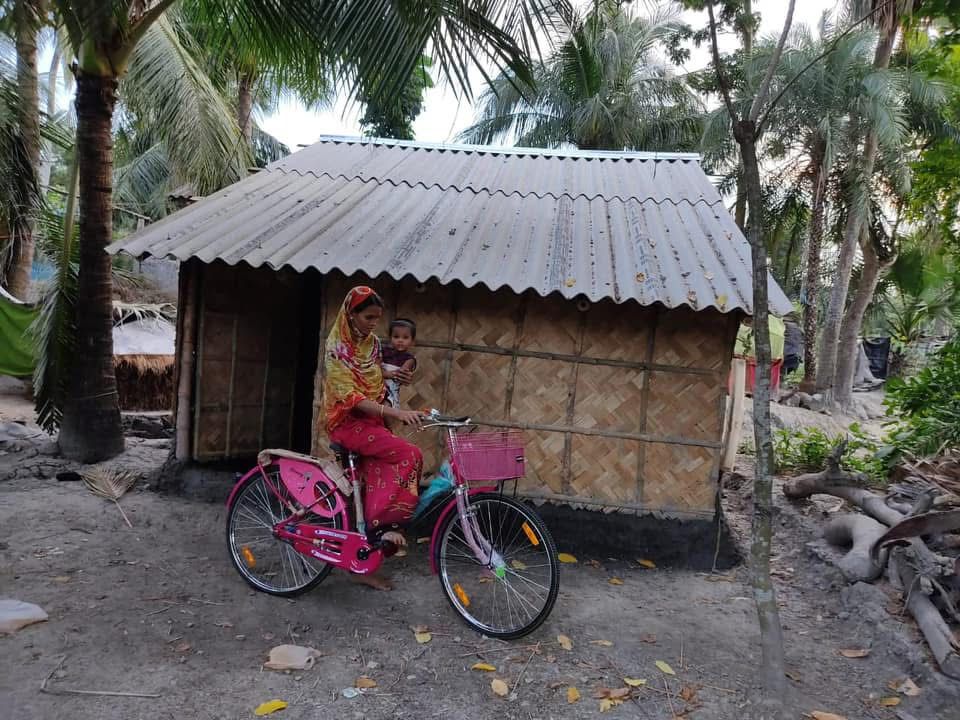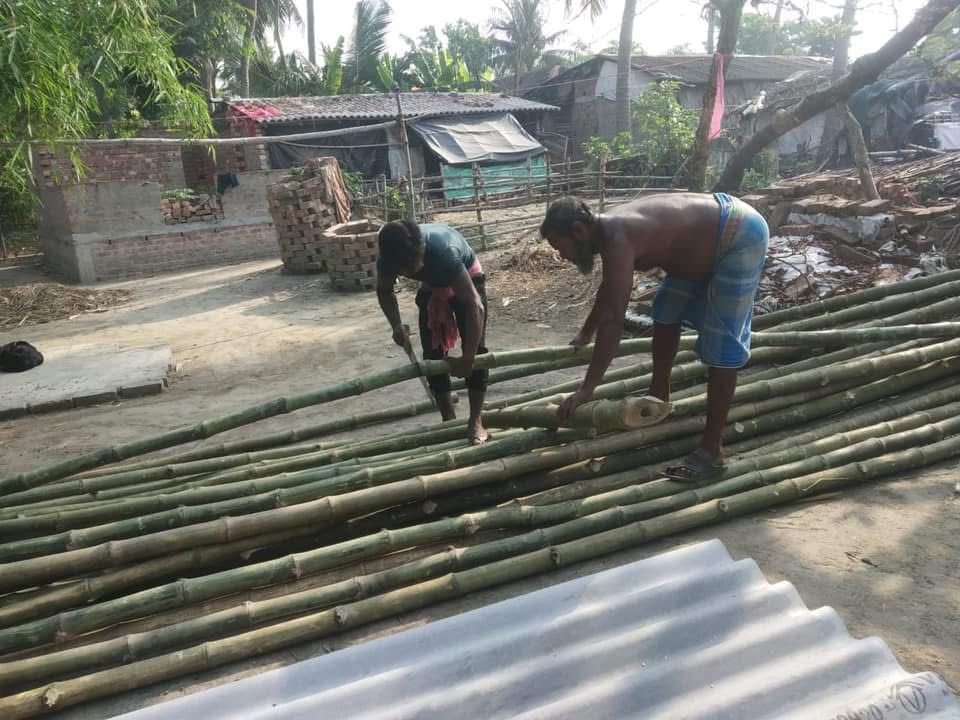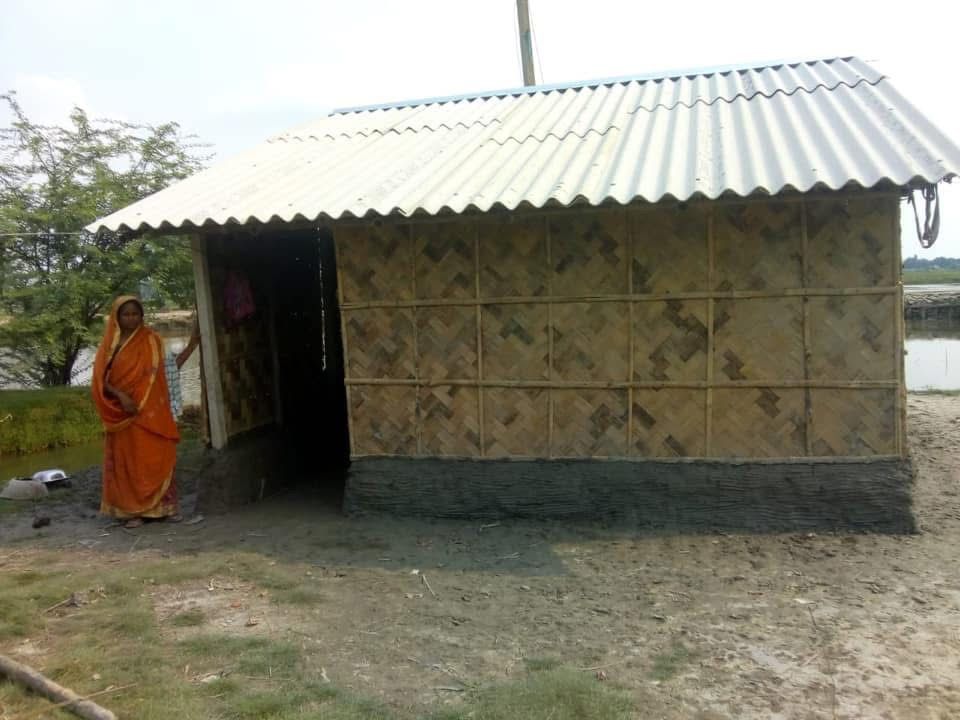Sundarban House Reconstruction Project
In May 2020, Cyclone Amphan left a trail of devastation across the Sundarbans, displacing thousands of families and rendering many homeless. The village of Sandeshkhali was particularly affected, with numerous families losing their homes to the storm's fury. During this challenging time, Tuhina Chatterjee led extensive relief efforts in the region and witnessed firsthand the dire conditions of those affected. Deeply moved by their plight, she partnered with Naba Diganta, a local organization, to launch the Sundarban House Reconstruction Project.
With the generous support of her friends and collaborators, Tuhina spearheaded the reconstruction of 80 eco-friendly houses. These homes, made from locally sourced mud and bamboo, are not only cost-effective but also designed to withstand the region's challenging environmental conditions. Each house built strengthened her connection with the community, as she worked closely with the villagers to ensure their specific needs were met.
The project was more than just an act of rebuilding—it was a step toward restoring dignity and stability to the lives of those who had lost everything. By reconstructing homes, the initiative addressed one of the most pressing challenges in the aftermath of natural disasters: homelessness, which leaves families vulnerable to extreme weather, health risks, and economic instability.
The Sundarban House Reconstruction Project embodies the principles of international social work by focusing on human dignity, sustainability, and community empowerment:
1. Human Rights and Social Justice:
By addressing homelessness and ensuring safe shelter, the project aligns with global efforts to uphold basic human rights.
2. Sustainability:
The use of eco-friendly materials like mud and bamboo supports environmentally sustainable development, resonating with the International Federation of Social Workers' (IFSW) goals of promoting ecological justice.
3. Community Development:
Engaging local resources and labor fosters a sense of ownership among the villagers, aligning with the International Association of Schools of Social Work's (IASSW) emphasis on community empowerment.
Alignment with UN Sustainability Goals:
1. SDG 1: No Poverty:
Providing housing helps alleviate the economic burden on displaced families.
2. SDG 11: Sustainable Cities and Communities:
The construction of eco-friendly, disaster-resilient homes contributes to building sustainable and safe living environments.
3. SDG 13: Climate Action:
The project highlights adaptive strategies to address the impact of climate-induced disasters.
The Sundarban House Reconstruction Project stands as a beacon of resilience and hope, demonstrating how grassroots initiatives, guided by the principles of social work and global sustainability goals, can rebuild lives and communities in the face of adversity.
